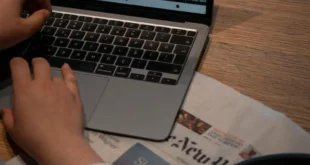In 2000, ANN (Arab News Network) correspondent in Cairo Ahmed Ezz Eldin was eager to attend the Sharm El Sheikh Peace Summit but his management did not assign him to cover the story because of financial constraints. Despite this, says Ezz Eldin, he insisted on going and paid for the trip himself to satisfy his professional conscience. "We had a perfect coverage of the summit's fast-paced events," said Ezz Eldin.
Ezz Eldin, who has been working as correspondent and chief of ANN's Cairo bureau since 1999, finds financial constraints the main obstacle impeding his work. "The financing is not enough to cover the political, social, scientific, and cultural events that take place in a large capital like Cairo, which is the central point for all regional events," said Ezz Eldin.
ANN, according to its publicity materials, is a "24-hour independent Arab news service" based in London and licensed by the Independent Television Commission (ITC), an independent body that grants licenses to commercial television companies in the United Kingdom, sets standards, and monitors broadcasters' output. The channel was launched in May 1997 to cover international news with a focus on the Arab Gulf states, the Middle East, North Africa, and Europe. The channel broadcasts a news bulletin on the hour, and programming includes political and social features, debates, talk shows, business analysis, sports, and scientific and cultural documentaries.
Although it is rumored that ANN has been expanding over the past two years, the station is now cutting its staffing and transmission options to reduce expenses.ANN started with 15 bureaus and twenty correspondents but now has nine bureaus worldwide, in Palestine, Baghdad, Muscat, Tehran, Cairo, Tripoli, Morocco, Paris, and Washington. They have closed down their bureaus in Sudan, Algeria, Madrid, and Moscow and currently rely on freelance correspondents in those places. However, the biggest cutback came two months ago when the channel stopped its transmission via the Egyptian satellite Nilesat, while remaining on ARABSAT and EutelSat.
ANN stopped sending satellite feeds from Cairo to its headquarters in London because the Egyptian government, and the privately-owned production company Video Cairo Sat, which are the only organizations licensed to provide satellite feed in Egypt, charge exceptionally high prices to feed to Europe, claimed Kassem Mizrani, ANN executive editor in chief. He adds that their channel used to pay $2500 to send a feed from Cairo while sending the same feed from the United States cost them $200.
"The cost of recording, directing, and feeding media materials here in Egypt is excessive," said Ezz Eldin, who calls on the Egyptian government to provide such services at reasonable prices and avoid monopolies.
Mohamed Gohar, CEO of Video Cairo Sat, says that these problems ceased when the price of feeds decreased with the launching in August 2000 of Nilesat II, whose footprint includes Europe. Prior to this, feeding from Egypt to Europe was done via foreign satellites like Eutelsat and Intelsat, at very high prices. "Now, as we own a position on Nilesat's transponder, we can control the price of feeds," said Gohar, who adds that other factors also helped reduce feed prices-the substitution of relatively cheap digital equipment for analogue and the existence of a large number of competitive European companies that link down satellite signals. A 10-minute feed from Cairo to Europe now costs $150-200, while an hour is priced at $400.
This is not the only difficulty that the channel claims to have encountered in Egypt. Two months ago, according to Salah Hamza, Nilesat's technical head, the management of the Egyptian satellite cancelled the contract with ANN because it did not pay its bills. Mizrani says that ANN management was trying to save capital without affecting the channel's penetration, given that ArabSat has the same footprint as Nilesat.
"We can't rely on Nilesat." Kassim Mizrani
However, the unspoken reason for abandoning their site on Nilesat rather than either of the other two satellites was their skepticism about the Egyptian government. "We can't rely on Nilesat," said Mizrani, claiming that the Egyptian government had tried earlier to interfere with the channel's editorial content. Prompted by a rumor that ANN was about to broadcast a program on Egyptian politics, Nabil Osman, head of the State Information Service, warned him, alleges Mizrani, that the Egyptian government would take severe measures against the channel if it violated Egyptian political taboos. "I was shocked," says Mizrani, who wonders how such violations of freedom of expression can take place in Egypt, often considered "the most liberal Arab country."
Osman, for his part, denies that the incident ever too place, saying that he never called Mizrani and that when he discusses a reporter's work, he usually does so after the fact. "It's all untrue, it's all unfounded, and it is without a grain of truth," says Osman.
ANN is not without political baggage itself. The main owner of the channel is Syrian businessman Somar Rifaat Al-Assad, son of Rifaat Al-Assad, brother of Syria's late president Hafez Al-Assad and himself former vice president of Syria. Rifaat is considered a potential challenger to the Syrian regime and was exiled by his uncle. Ownership of the channel by such a political figure raises legitimate questions about the political motives behind its establishment.
Two years ago, the channel conveyed its antagonistic stance towards the Syrian regime in notably explicit form. During the week of Hafez Al-Assad's funeral in June 2000, the channel repeatedly broadcast a statement on behalf of Rifaat Al-Assad. The statement emphasized Rifaat's sadness at being refused entry to Syria to attend his brother's funeral. It also questioned the legitimacy of Bashar's leadership and highlighted Rifaat's challenge to the regime.For its part, the ITC issued a statement in which it accused ANN of failing to demonstrate due impartiality regarding the political situation in Syria. As Mizrani remembers it, however, the ITC complained only about the fact that they kept broadcasting verses from the Koran for three consecutive days. When the channel management explained to the organization that this was a traditional form of mourning and "a sign of respect for the dead," the problem was settled, added Mizrani. Mizrani goes on to say that this statement was one of their greatest scoops, as Rifaat Al-Assad did not give it to any other channel in the world; many journalists and correspondents came to the channel's offices that day and ANN was quoted by many news channels and publications.
The channel no longer criticizes the Syrian regime openly as it used to do before, says an expert. However, it still insinuates the impotence of the Syrian regime by focusing on the importance of liberating the Golan Heights, an issue that other Arab news channels tend to overlook in their focus on Gaza and the West Bank.
Observers of Arab satellite TV claim that this antagonistic relationship is the main reason behind the channel's inability to attract Arab intellectuals to appear on its shows and express their political views freely, many believing that the real political goal behind the launching of the channel is to challenge the Syrian regime.
Despite financial problems and political dilemmas, the channel is still considered one of the major Arab news channels, even if it has not, according to many observers, achieved the same level of professionalism as Al Jazeera, Abu Dhabi Satellite TV, and MBC.
According to Mizrani, when ANN first opened, they had difficulty finding the qualified staff, using the technology, and "sailing in the stormy Arab political seas without being seen as offending on purpose."
ANN's last market research, conducted in 1999, indicates that the channel now has around 40 million viewers in the Arab world and 5 million in Europe.
According to Mizrani, the channel had a larger audience during its first two years because it was transmitted by analogue. Later, with the introduction of digital transmission, it switched to the latter, which costs $30,000 per month as against $300,000 for analogue. Given the initial rarity of digital satellites, the channel lost many viewers, particularly in Africa. At this point, ANN's management was forced to close down some bureaus, stop some programs, and reduce the length of satellite feeds. It took the channel three years to recover initial penetration levels as viewers started to adopt the new technology.
According to one expert in the field, ANN coverage of current Arab crises such as the Palestinian Intifada and Iraq is as comprehensive as the coverage provided by more prominent Arab news channels.
"Since we got started, our main concern has been the Palestinian issue," said Mizrani. "We support Palestine not because we are Arabs but because it a just cause."
He rejects the idea of hosting Israeli figures on the channel and finds it enough to express the Israeli view by quoting international sources. "We can't host them," says Mizrani. "We don't believe they are seeking peace."
However, the same expert believes that ANN still has to present the western and Israeli perspectives more fully, not in order to realize the "artificial objectivity" that preoccupies the western media, but to correct false Arab impressions based on "sensational, not rational, interpretations of events."
The same expert adds that if the channel cannot afford to host Western politicians and intellectuals, it has to focus on editorials and books that dominate the Western market, shape public opinion, and orient westerner decision makers.
Regarding news, the channel is reliable, says a close observer of Arab TV scene. The only difference between it and more prominent Arab news channels in this respect lies in its use of a simpler language that is more accessible to the average viewer.
As for analysis, an authority on Arab broadcasting states that the channel has to dedicate more shows to explaining to its audience the context of events. "They only have two analytical programs, Qanadil Fil -Zalam ('Lamps in the Dark'), which addresses a highly sophisticated audience, and Al-Nadi Al-Siyasi ('The Political Club')," he notes.
These relative shortcomings may have something to do with the fact that the channel has not yet recovered 40 percent of the capital it spent since it started five years ago. Mizrani, however, relates the deficit to the illiteracy of Arab audiences, who have "no interest in news or politics" and are obsessed with entertainment.
On the other hand, Mizrani stresses that these financial problems do not threaten the channel's future. "No news channel in the Arab World can cover its expenditure from whatever revenues, whether ads or sponsorship," said Mizrani. "We will never face financial problems that make us close the channel."
 Arab Media & Society The Arab Media Hub
Arab Media & Society The Arab Media Hub




